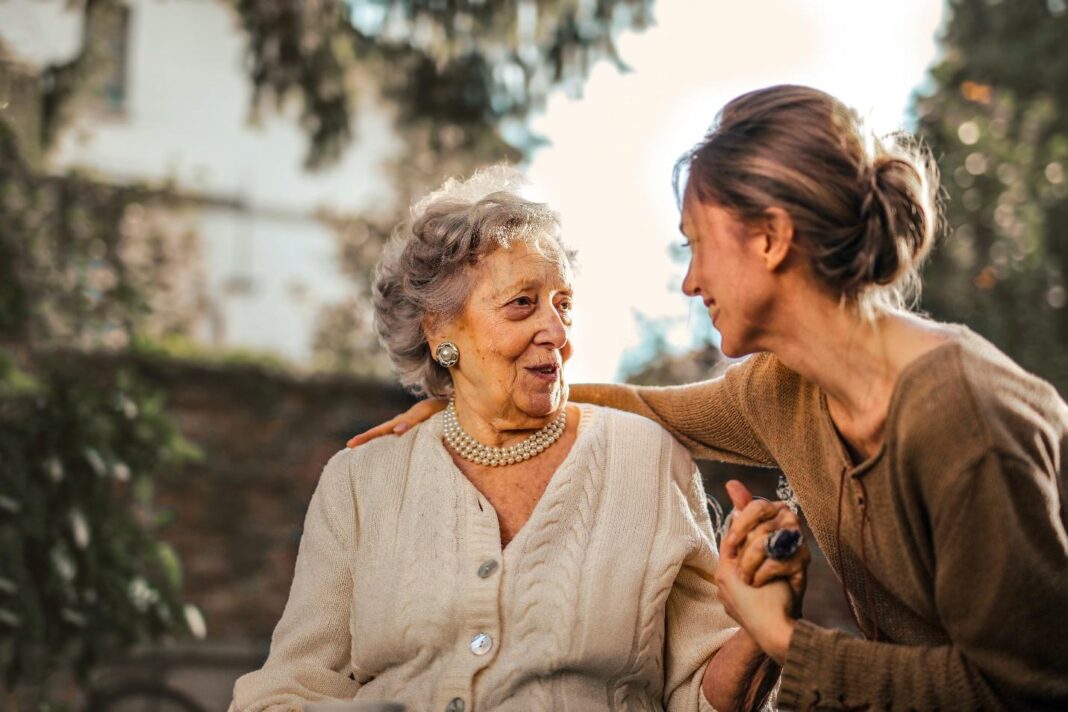Seeing your loved ones get old can be difficult, as you see the very people who were once young, powerful, and full of life turn old and frail. As difficult it is for you, it is even more difficult for them to accept that they are not as young as they used to be. Since seniors have a strong desire to maintain control over their lives and remain independent, they are more likely to hide or downplay their problems until the end. Until they experience a sudden decline in their health or an accident, they won’t ask for your help. But these aspects can complicate things for both parties, as suddenly adding the stress of caretaking or hospitalization in a worst-case scenario can complicate matters even more.
Therefore, to avoid such complications, start complicating your parents’ mental and physical abilities. Encourage them to financially plan for the future and take necessary legal actions. You may also want to look into providing long-term care, ideally with a home nurse. But first, let us discuss some tell-tale signs that your aging parents need help.
1. Reduced hygiene
As your loved ones age, some signs of compromise in hygiene or difficulty in maintaining hygiene will start appearing. For example, you may notice that they face difficulty getting in or out of the tub or are unable to clean themselves properly. Some visible signs would be increased body odor or they may be repeating stained or dirty clothes. The case can worsen if your loved one is already confined to a wheelchair or bed. In that case, reduced hygiene maintenance can cause bed sores, which if neglected for too long can progress to bedsores stage 4, which infect the bone and can lead to serious medical problems and even death. Even at the least, if little signs start showing up, such as lack of oral hygiene, etc., then it is time that your loved ones need help.
2. Collecting useless items
Old people tend to start hoarding stuff more because they are unable to make decisions about which items are necessary and which items they should dispose of. While the hoarding behavior may not be harmful at first, it can quickly lead to an unsanitary and unsafe living environment because of the clutter and disorganization. For this reason, if you notice a hoarding behavior developing in your elderly loved ones, know that it is time to help them.
3. Develop mild confusion
As people get old and their mental and cognitive abilities start declining. This means that if you start noticing that your elderly loved ones have become more forgetful or remain confused, then it means they need help. The reason is that their mental capabilities may be slowly declining, leading to several memory-related conditions such as Alzheimer’s disease or dementia, and may even cause cognitive issues. If you notice these symptoms, visit your general physician to consult and ask if any tests can give more insight into your mental condition.
4. Neglected home condition
As your loved ones get old, it may get difficult for them to manage and clean their home. So you may notice some signs such as an overgrown yard, driveway that needs shoveling, cluttered house, piled up laundry or dishes, or maybe the content in fridge and pantry are spoiled. These signs are hard to miss, so if you notice them, know that it is time that they need some assistance in managing their home.
5. Physical change
One of the most evident signs that your elderly loved ones are not able to care for themselves is a change in their physical condition. It can be hygiene-related, as mentioned above. Or it may be related to their physical health. For example, they may get sick more often or have low energy levels throughout the day. They may be losing weight rapidly or gaining it at an abnormal rate. Maybe they are not able to see as well as they used to, or they may have some minor injuries or bruises. Such physical changes are evident symptoms that their physical and mental health is deteriorating, and they now require assistance in living.
6. Mobility issues
One of the biggest tell-tale signs that your elderly loved one now requires assistance in living is mobility issues. They may face struggles while going up or down the stairs, have problems coordinating their eye-to-hand movement, or may not be able to work anymore. As a result, their quality of living would deteriorate, and they may start facing problems doing even the simplest tasks. Keep in mind that delaying the inevitable and not arranging for long-term care measures on time can lead to serious consequences. For this reason, opt to arrange for an at-home nurse or any other feasible option like stairlift installation to improve their quality of life and assist in day-to-day living.
7. Depression or low energy
Old age is a difficult time, especially for those who don’t have a support system around them. If they are not surrounded by family or people their age, your elderly loved ones can fall victim to depression. Depression can be because of medical conditions such as hypertension, diabetes, dementia, chronic pain, cancer, stress, stroke, etc. Apart from that, some combinations of medicines used to treat certain conditions can also lead to depression. As a result, elderly individuals can fall victim to subsyndromal depression. While it doesn’t meet the full criteria that define major depression, if untreated, it can lead to major depressive episodes. It increases the risk of suicide, makes them resist help and even healthcare, and reduces their quality of life. For this reason, if you notice such signs, know it is time to help them.
Conclusion
It is hard to watch your loved ones turn old and frail, but it is a circle of life, and accepting this reality is the first and most crucial step in creating a comforting and safe environment for your loved ones. So, if you have started noticing signs that indicate that old age or their health condition is restricting their lives and affecting them, then it is time to make necessary arrangements. One option is to move in with your elderly relative or keep them in your home where they can be surrounded by family, and you can take care of them. If that is not possible, consider hiring a full-time house nurse who can take care of their things and their health. The last option is to admit them into a nursing home where they can be surrounded by people of their age and staff who can attend to their every need. So, keep their well-being and happiness in mind in whatever step you take.















